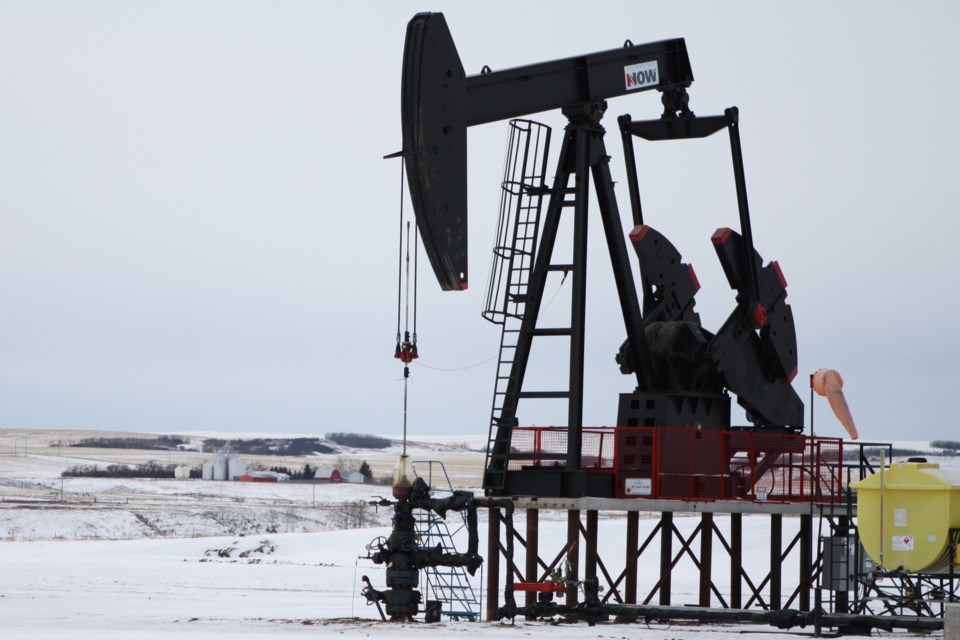The Keystone XL expansion project was touted as a safe, reliable and environmentally responsible way to deliver crude oil to U.S. markets. Its cancellation was not necessarily a shock, but a warning for some of the things to come.
“Keystone to me was the canary in the coal mine. We're not going to get too many second chances on this – we better figure out our own policy of what we want to be when we grow up as Canada and what we're doing in the West,” said Lac Ste. Anne-Parkland MLA Shane Getson, whose riding includes part of Sturgeon County.
Keystone XL has been controversial for more than a decade. It’s faced not only cancellations, but also presidential vetos, protests and opposition from celebrities and Nobel Laureates such as the Dalai Lama and Archbishop Desmond Tutu. But, for every time it’s been swiped off the table, there has always motive to put it back on.
Most recently, the new U.S. Chairman of the Senate Energy Committee, Democratic Senator Joe Manchin, urged U.S. President Joe Biden to reconsider his stance on KXL.
In a Feb. 9 letter to the president, Manchin wrote crude oil would continue to find its way to market through other modes of transport like truck and rail that have higher incidences of releases of crude oil per ton-mile than pipelines. He also highlighted the importance of maintaining relationships with allies.
Getson said whether or not Keystone is resurrected is inconsequential, but there are broader implications of the cancellation.
“When you look at the existing lines that are in place, we want to make sure that those are still there, for sure,” he said.
Getson said we can no longer take for granted that our largest trading partner to the south is going to want our product. He cited the aluminium industry and the strictly Buy American policy they currently have in place.
“That cuts out our supply that cuts out all of our stuff that we have put as final or finished products to that market ... It's on our back door, and they're our best customer," he said. "If anything, we should figure out, ‘OK – how are we part of that?’” he said.
Back in January, after Biden signed an executive order revoking KXL’s permit, Alberta Premier Jason Kenney called on the federal government to impose trade sanctions in retaliation.
Getson said we would lose if we went gung-ho with trade sanctions. The solutions he suggests are marketing the good things we do with green energy, and instead of fixating, we need to pivot.
“If we don't start looking at this strategically, as a nation of what can bind us together, I'm afraid it's going to tear us apart. And this isn't politics. This is economics and realities,” he said.
If we are looking at pipelines, Getson said, we should first be looking at existing pipelines and our regulatory processes and then move on to new corridors.
“So, we already have a corridor, but let's look at what we can do along those existing corridors. It's the Trans-Canada Highway, or otherwise, and then let's identify new corridors, like the one going up into the Arctic ... it’s is a massive game-changer,” he said.
NDP Opposition Critic for Energy Kathleen Ganley said Keystone XL is a very important project in Alberta and the cancellation hurt Albertans because people are losing their jobs.
“Going forward, what we need to do is be strategic and be diplomatic and ensure that we are protecting our trade relationship and those other pipelines that are going to the States,” said Ganley.
Ganley doesn’t think trade sanctions would help the province and instead thinks we need to focus on maintaining relationships and being strategic about how we move forward into the future.
“I do think what happened in the U.S. certainly highlights the importance of something like the Trans Mountain pipeline. We fought very hard for that when we were in government and I think it's going to be very important because it's entirely within Canadian jurisdiction. That gives us a lot more control over what's going on,” she said.
The NDP has its own concerns with the pipeline, and those concerns have to do with the price.
At the end of March 2020, Kenney announced $1.5 billion in investment in KXL to accelerate construction. The investment included a $6-billion loan guarantee for 2021.
“It's taxpayer money – it's all of our money. I think that we, as the as the collective owners of the money, have a right to know everything we can about decisions that were made to spend it. Ultimately, it looks like this $1.5-billion bet is going to be a loss,” said Ganley.
The NDP put forward an emergency motion and called a Public Accounts Committee meeting on Jan. 26 to put in a formal request that Cabinet waive privilege and release the full risk analysis for the investment, and all financial documents related to the deal. The motion did not pass.
“Ultimately the UCP voted against it and what they put up instead – they claim it was a related motion – but essentially it was a motion to say we will release publicly documents which we are required to release in the budget,” she said.
Ganley has written to the Auditor General, Doug Wylie, requesting a performance audit of the decision.
“We don't know yet whether he will choose to perform that performance audit, but should he choose to do that, he will be able to get access to those documents,” she said.
Read more from StAlbertToday.ca



